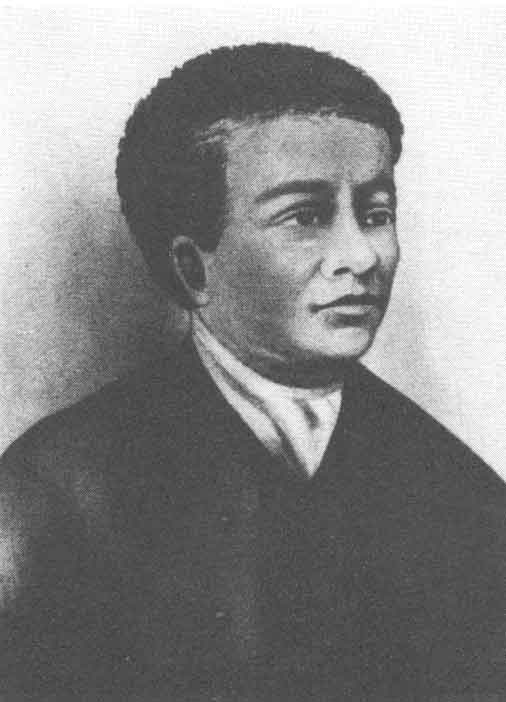As quoted in Friends' Intelligencer Vol. XI (1854), p. 821
Benjamin Banneker: Zitate auf Englisch
Letter to Thomas Jefferson on racism and slavery (19 August 1791) in Copy of a letter from Benjamin Banneker to the secretary of state, with his answer. http://etext.virginia.edu/etcbin/toccer-new2?id=BanLett.sgm&images=images/modeng&data=/texts/english/modeng/parsed&tag=public&part=all, p. 8. Printed and sold by Daniel Lawrence, no. 33. North Fourth-Street, near Race. Philadelphia M.DCC.XCII. (1792) http://etext.virginia.edu/images/modeng/public/BanLett/B24073a.jpg in official website of University of Virginia Library http://www2.lib.virginia.edu/etext/index.html. <!-- Retrieved 2010-06-18 -->
Kontext: SIr, I am fully sensible of the greatness of that freedom, which I take with you on the present occasion; a liberty which seemed to me scarcely allowable, when I reflected on that distinguished and dignified station in which you stand, and the almost general prejudice and prepossession, which is so prevalent in the world against those of my complexion.
I suppose it is a truth too well attested to you, to need a proof here, that we are a race of beings, who have long labored under the abuse and censure of the world; that we have long been looked upon with an eye of contempt; and that we have long been considered rather as brutish than human, and scarcely capable of mental endowments.
Sir, I hope I may safely admit, in consequence of that report which hath reached me, that you are a man far less inflexible in sentiments of this nature, than many others; that you are measurably friendly, and well disposed towards us; and that you are willing and ready to lend your aid and assistance to our relief, from those many distresses, and numerous calamities, to which we are reduced. Now Sir, if this is founded in truth, I apprehend you will embrace every opportunity, to eradicate that train of absurd and false ideas and opinions, which so generally prevails with respect to us; and that your sentiments are concurrent with mine, which are, that one universal Father hath given being to us all; and that he hath not only made us all of one flesh, but that he hath also, without partiality, afforded us all the same sensations and endowed us all with the same faculties; and that however variable we may be in society or religion, however diversified in situation or color, we are all of the same family, and stand in the same relation to him.
Sir, if these are sentiments of which you are fully persuaded, I hope you cannot but acknowledge, that it is the indispensible duty of those, who maintain for themselves the rights of human nature, and who possess the obligations of Christianity, to extend their power and influence to the relief of every part of the human race, from whatever burden or oppression they may unjustly labor under; and this, I apprehend, a full conviction of the truth and obligation of these principles should lead all to.
This appeared in Banneker's Almanac in 1794, and is commonly attributed to him, but originates earlier in "Reflections on different Subjects of Morality, by Stanisław Leszczyński, King of Poland, Duke of Lorrain and Bar" in The Universal Magazine (1765), p. 119
Misattributed
Letter to Thomas Jefferson on slavery (19 August 1791)
